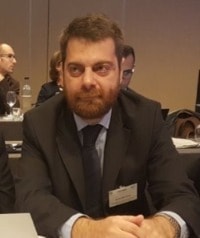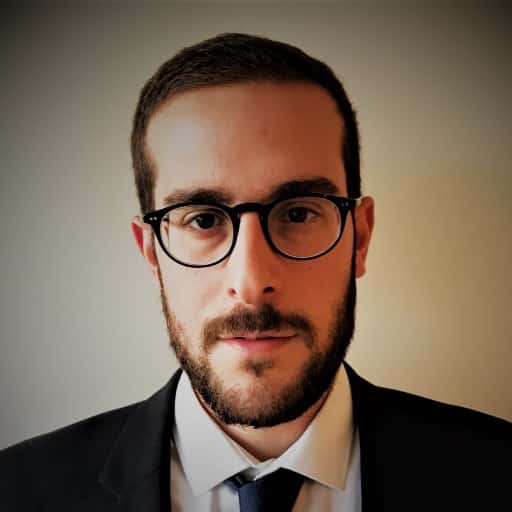Editorial

Evangelos Raftopoulos
Editor and Founding Director of MEPIELAN Centre
MEPIELAN Takes the Initiative to Establish an Aarhus Centre in Greece to Promote Participatory Environmental Democracy: a Leap Into the Future
The dawn of 2024 finds MEPIELAN CENTRE in full fledge of its multifarious activities. But beyond its lofty targets that drive its research and educational activities to be completed in 2024, as reflected in this edition of Bulletin, MEPIELAN has mobilized to provide an institutional response to a particularly important challenge that looms decisively at the core of sustainable governance and environmental democracy. The establishment of an Aarhus Centre in Greece as part of its activities, an initiative that has been launched and is being consistently pursued since the beginning of 2023.
The Aarhus Centres play a crucial role in promoting all three pillars of the 1998 Aarhus Convention, namely access to information, public participation in decision-making and access to justice in environmental matters, by providing platforms to engage citizens, governments and the private sector in dialogue on environmental challenges. Since 2002, the OSCE has supported the establishment, operation and networking of the Aarhus Centres, which today cover more than 60 Aarhus Centres in 15 countries across the OSCE region.
MEPIELAN's initiative for the establishment of an Aarhus Centre in Greece implements the specific relevant objectives of MEPIELAN, as set out in Articles 3 and 4 of its Constitution, as well as its strategic programme, as provided for in Article 5 of its Constitution. It is in line with the Centre's commitment to promote participatory environmental governance for the sustainable development of the Mediterranean region and beyond, in terms of building international common interest. And the Aarhus Convention clearly delivers a pioneering legal and governance framework for unleashing such a complex but critical transformative process.
The process started with a proposal to the UNECE Aarhus Convention Secretariat and was discussed at a preliminary online meeting in February 2023. The proposal was very well received, and with the consistent assistance of the UNECE Secretariat, contact was established with the OSCE, the Office of the Coordinator of Economic and Environmental Activities of the OSCE. In an online meeting with the OSCE Office in March 2013, a structured proposal entitled "Establishment of an Aarhus Centre in Greece" was presented, which was welcomed and opened the door for continued cooperation between the OSCE and the MEPIELAN Centre on this issue.
MEPIELAN E-Bulletin is a digital academic and practitioner newsletter of the MEPIELAN Centre, launched in 2010. It features insight articles, reflective opinions, specially selected documents and cases, book reviews as well as news on thematic topics of direct interest of MEPIELAN Centre and on the activities and role of MEPIELAN Centre. Its content bridges theory and practice perspectives of relational international law, international environmental law and participatory governance , and international negotiating process, thus serving the primary goal of Centre: to develop an integrated, inter-disciplinary, relational, context-related and sustainably effective governance approach creating, protecting and advancing international common interest for the present and future generations. Providing a knowledge- and information-sharing platform and a scholarly forum, the Bulletin promotes innovative ideas and enlightened critical views, contributing to a broader scholarly debate on important issues of international common interest. The audience of the Bulletin includes academics, practitioners, researchers, university students, international lawyers, officials and personnel of international organizations and institutional arrangements, heads and personnel of national authorities at all levels (national, regional and local), and members of the civil society at large.
Articles
Spatial/ Regional Planning: a Territorial Dimension of Human Rights and Democracy
The Council of Europe actively promotes sustainable development in line with Recommendation Rec (2002) 1 of the Committee of Ministers to member states on the Guiding Principles for Sustainable Spatial Development of the European Continent, which were adopted initially by the Council of Europe Conference of Ministers responsible for Regional/Spatial Planning (CEMAT). The Action Plan adopted by the Heads of State and Government at the Third Council of Europe Summit in Warsaw, on 17 May 2005, includes a section on “Promoting sustainable development” which provides that: “We are committed to improving the quality of life for citizens. The Council of Europe shall therefore, on the basis of the existing instruments, further develop and support integrated policies in the fields of environment, landscape, spatial planning and prevention and management of natural disasters, in a sustainable development perspective”.
The North-Western Mediterranean Particularly Sensitive Sea Area
By Resolution MEPC.380(80) of 7 July 2023, the Marine Environment Protection Committee (MEPC) of the International Maritime Organization (IMO) designated the North-Western Mediterranean Sea as a Particularly Sensitive Sea Area (PSSA). It is the sixteenth PSSA so far established and the second in the Mediterranean Sea.
PSSAs are areas that need special protection through action by IMO because of their significance for recognized ecological, socio-economic or scientific reasons and which may be vulnerable to damage by international maritime activities. They can be established according to a set of Revised guidelines for the identification of PSSAs, adopted in 2005 by the IMO Assembly under Resolution A.982(24), as amended in 2015 by Resolution MEPC.267(68).
Liability for Injurious Consequences Arising Out of Offshore Exploration and Exploitation
The continuous expansion of the offshore industry due to the increasing energy demands may have serious detrimental impacts on the marine environment, which in the smaller regional seas could be hardly reparable. Suffice to mention the Deepwater Horizon disaster in the Gulf of Mexico, the largest marine oil spill to date.
Prevention activities are therefore very important, although the risk of pollution, due to the extremely ultrahazardous nature of offshore drilling, cannot be completely eliminated This main characteristic of offshore activities makes liability for their injurious consequences almost as much important as prevention measures, as far as the victims are concerned.
Internationalizing Participatory Democracy: Implementing the Principles of the Aarhus Convention in International Decision-making
Considering international law and the non-linear phases of its long historical development, there is a compelling theoretical-practical need – but one that is not confessed by the dominant positivist thinking that permeates it: to delve into, and evaluate the normative quality of the horizontality of international order. In other words, to delve into the process of the horizontal normativity of international law in its unceasing pursuit and polycentric flowing construction of the international common interest on which international society is based and evolves. This is a characteristic contemporary neglect that goes hand in hand with the intolerable limitations imposed by the positivist methodology of international law that imbues the religious-like "fundamental belief" of the modern era of “non-thoughtful international lawyers” that international law exists and develops as an analogy of private law, that treaties are concluded as discrete transactions and function like private law contracts.
Public Participation in China’s Green Leap Forward: Paradoxes and Changing Mode in the Era of Political Control and Environmental Technocracy
In November 2022, China’s State Council announced a spatial layout plan for national parks. It selected 49 candidate areas for building national parks, including the first five that had all been recently developed. After these 49 planned parks are established, China will have the largest national park system in the world, covering close to 10% of the country’s land area and protecting 80% of its key wildlife species and their habitats. This plan, involving 700 existing protected areas and 10 world heritage sites across 28 provinces, is just one component, and not even the largest, of a series of mega initiatives that China has been rapidly implementing to enhance biodiversity conservation in recent years.
Spatial/ Regional Planning: a Territorial Dimension of Human Rights and Democracy
The Council of Europe actively promotes sustainable development in line with Recommendation Rec (2002) 1 of the Committee of Ministers to member states on the Guiding Principles for Sustainable Spatial Development of the European Continent, which were adopted initially by the Council of Europe Conference of Ministers responsible for Regional/Spatial Planning (CEMAT). The Action Plan adopted by the Heads of State and Government at the Third Council of Europe Summit in Warsaw, on 17 May 2005, includes a section on “Promoting sustainable development” which provides that: “We are committed to improving the quality of life for citizens. The Council of Europe shall therefore, on the basis of the existing instruments, further develop and support integrated policies in the fields of environment, landscape, spatial planning and prevention and management of natural disasters, in a sustainable development perspective”.
The North-Western Mediterranean Particularly Sensitive Sea Area
By Resolution MEPC.380(80) of 7 July 2023, the Marine Environment Protection Committee (MEPC) of the International Maritime Organization (IMO) designated the North-Western Mediterranean Sea as a Particularly Sensitive Sea Area (PSSA). It is the sixteenth PSSA so far established and the second in the Mediterranean Sea.
PSSAs are areas that need special protection through action by IMO because of their significance for recognized ecological, socio-economic or scientific reasons and which may be vulnerable to damage by international maritime activities. They can be established according to a set of Revised guidelines for the identification of PSSAs, adopted in 2005 by the IMO Assembly under Resolution A.982(24), as amended in 2015 by Resolution MEPC.267(68).
Liability for Injurious Consequences Arising Out of Offshore Exploration and Exploitation
The continuous expansion of the offshore industry due to the increasing energy demands may have serious detrimental impacts on the marine environment, which in the smaller regional seas could be hardly reparable. Suffice to mention the Deepwater Horizon disaster in the Gulf of Mexico, the largest marine oil spill to date.
Prevention activities are therefore very important, although the risk of pollution, due to the extremely ultrahazardous nature of offshore drilling, cannot be completely eliminated This main characteristic of offshore activities makes liability for their injurious consequences almost as much important as prevention measures, as far as the victims are concerned.
Internationalizing Participatory Democracy: Implementing the Principles of the Aarhus Convention in International Decision-making
Considering international law and the non-linear phases of its long historical development, there is a compelling theoretical-practical need – but one that is not confessed by the dominant positivist thinking that permeates it: to delve into, and evaluate the normative quality of the horizontality of international order. In other words, to delve into the process of the horizontal normativity of international law in its unceasing pursuit and polycentric flowing construction of the international common interest on which international society is based and evolves. This is a characteristic contemporary neglect that goes hand in hand with the intolerable limitations imposed by the positivist methodology of international law that imbues the religious-like "fundamental belief" of the modern era of “non-thoughtful international lawyers” that international law exists and develops as an analogy of private law, that treaties are concluded as discrete transactions and function like private law contracts.
Public Participation in China’s Green Leap Forward: Paradoxes and Changing Mode in the Era of Political Control and Environmental Technocracy
In November 2022, China’s State Council announced a spatial layout plan for national parks. It selected 49 candidate areas for building national parks, including the first five that had all been recently developed. After these 49 planned parks are established, China will have the largest national park system in the world, covering close to 10% of the country’s land area and protecting 80% of its key wildlife species and their habitats. This plan, involving 700 existing protected areas and 10 world heritage sites across 28 provinces, is just one component, and not even the largest, of a series of mega initiatives that China has been rapidly implementing to enhance biodiversity conservation in recent years.
Opinions
Energy Communities: A route of Public Participation towards Energy Democratisation
Energy communities are considered as vehicles for citizens to collectively engage in the generation, consumption, storage, trading, and distribution of energy, marking a shift towards a decentralized, sustainable, and inclusive energy framework. EU has been at the forefront of championing the energy community initiative, while citizen engagement in energy communities is an essential tool towards energy transition. Across the European Union (EU), more than 9,000 energy communities are actively addressing energy poverty. “Renewable Energy Communities” (RECs) and “Citizen Energy Communities” (CECs) are concepts already defined in EU legislation, granting these groups a recognized presence in the energy sector focused on local engagement and community benefit over profit. In addition, the 2019 European Green Deal emphasized that citizens are and should remain a driving force of the transition to sustainability. Legislative strides tied to the “Fit for 55” initiative and the “RePowerEU” plan show the EU's drive to foster community-scale, participatory renewable energy systems.
Energy Communities: A route of Public Participation towards Energy Democratisation
Energy communities are considered as vehicles for citizens to collectively engage in the generation, consumption, storage, trading, and distribution of energy, marking a shift towards a decentralized, sustainable, and inclusive energy framework. EU has been at the forefront of championing the energy community initiative, while citizen engagement in energy communities is an essential tool towards energy transition. Across the European Union (EU), more than 9,000 energy communities are actively addressing energy poverty. “Renewable Energy Communities” (RECs) and “Citizen Energy Communities” (CECs) are concepts already defined in EU legislation, granting these groups a recognized presence in the energy sector focused on local engagement and community benefit over profit. In addition, the 2019 European Green Deal emphasized that citizens are and should remain a driving force of the transition to sustainability. Legislative strides tied to the “Fit for 55” initiative and the “RePowerEU” plan show the EU's drive to foster community-scale, participatory renewable energy systems.
Documents & Cases
International Court of Justice to Render Historic Opinion on Climate Change Amid Climate Emergency
In the wake of a landmark United Nations General Assembly Resolution, the International Court of Justice has initiated the process of delivering an advisory opinion on the obligations of states under international law to address the multifaceted impacts of climate change. Amid a heated debate on the environmental obligations of states, the UNGA Resolution is the third recent request for a legal opinion before international judicial bodies, albeit the first to be submitted to the Court.
International Court of Justice to Render Historic Opinion on Climate Change Amid Climate Emergency
In the wake of a landmark United Nations General Assembly Resolution, the International Court of Justice has initiated the process of delivering an advisory opinion on the obligations of states under international law to address the multifaceted impacts of climate change. Amid a heated debate on the environmental obligations of states, the UNGA Resolution is the third recent request for a legal opinion before international judicial bodies, albeit the first to be submitted to the Court.
Books
The Environmental Rule of Law for Oceans
This book explores the environmental rule of law for oceans from a range of different perspectives.
The Environmental Rule of Law for Oceans
This book explores the environmental rule of law for oceans from a range of different perspectives.
Written by

Evangelos Raftopoulos
Editor and Founding Director of MEPIELAN Centre
Professor Emeritus of International Law & International Environmental Law

Evangelos Raftopoulos
Editor-in-Chief
Founding Director of MEPIELAN Centre
Professor Emeritus of International Law & International Environmental Law

Socrates Zachos
Editorial Assistant
Ph.D (Panteion University)
MEPIELAN Senior Research Fellow

Alexandros Kailis
Editorial Research Team
Ph.D (Panteion University)
MEPIELAN Senior Research Fellow

Maria Striga
Editorial Research Team
LL.M (Kent)
MEPIELAN Research Fellow

Georgios Raftopoulos
Editorial Research Team
LL.M (UCL)
MEPIELAN Research Fellow

Marina Soilemezidou
Editorial Research Team
Ph.D (Panteion University)
MEPIELAN Research Fellow

Ilias Diamantopoulos
Editorial Research Team
B.A. (Panteion University)
MEPIELAN Research Assistant
Dr. Steinar Andresen
Research Professor, Fridtjof Nansen Institute, Norway
Dr. Maguelonne Déjeant-Pons
Head of Division, Policy Development, Democratic Governance Directorate, Council of Europe
Professor Peter Haas
Professor of Political Science, University of Massachussetts-Amherst, USA
Professor Moira L. McConnell
Professor of Law, Dalhousie University, Canada
Professor Evangelos Raftopoulos
Founding Director of MEPIELAN Centre
Professor Emeritus of International Law & International Environmental Law, Panteion University, Athens, Greece
Professor José Juste-Ruiz
Professor of International Law, University of Valencia, Spain
Professor Tullio Scovazzi
Professor of International Law, University of Milan-Bicocca, Italy
Dr. Konstantinos Tsimonis
Lecturer in Chinese Society, King’s College London, UK
Professor Budislav Vukas
f. Judge of ITLOS, f. Professor of International Law, University of Zagreb, Croatia

